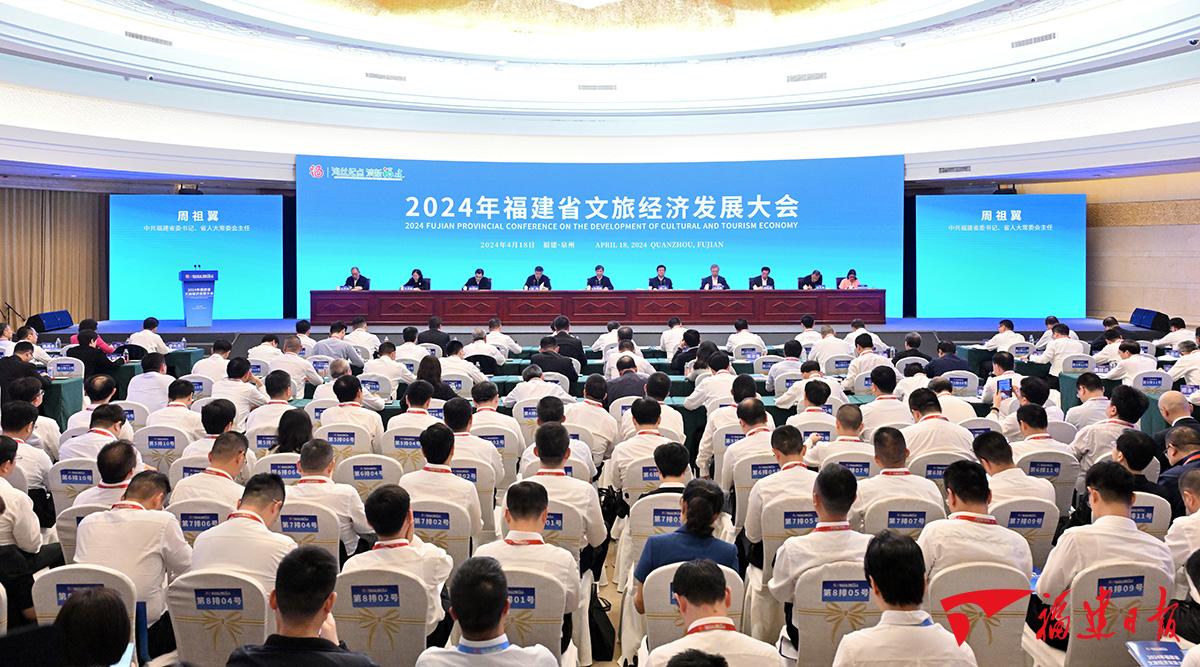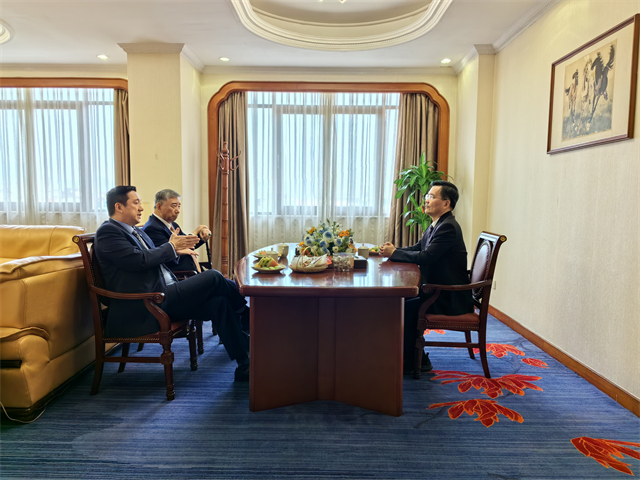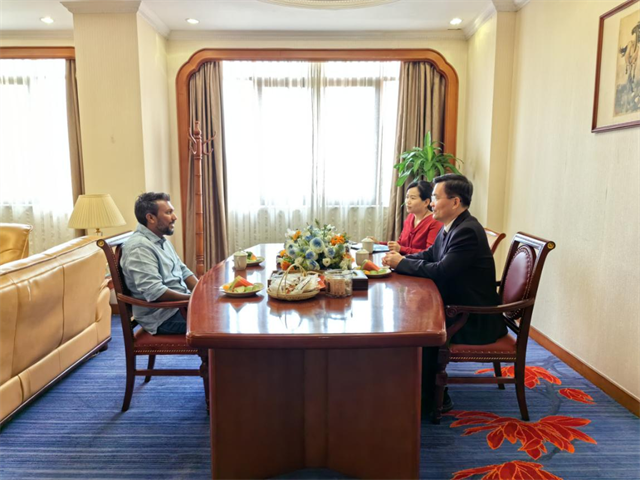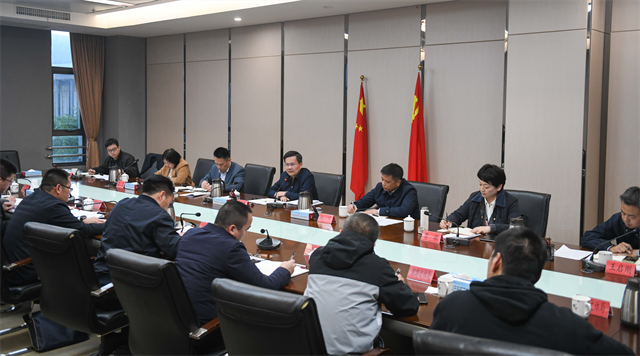当地时间11月24日,由中国旅游研究院与格里菲斯大学联合主办的“第三届东西方对话‘旅游与中国梦’国际会议”在澳大利亚黄金海岸举办。戴斌院长在开幕式上致辞,并发表了题为“中澳旅游合作的国家意志和民意基础”演讲。全文如下:
各位学界同仁,朋友们,
上午好!
Dear colleagues and friends,
Good morning!
在过去的十年中,中澳两国旅游交流所取得的巨大成就,无论是放在双边经贸人文交流的框架下,还是放在全球旅游发展的视野中,都是不可忽视的样本和典范。2007年到2016年,中国公民访问澳大利亚的游客总数为736.61万,年均增速为14.0%。2016年,中澳两国游客分别在目的地消费了52.7亿美元和15.88亿美元,对服务贸易增长和就业的综合贡献日渐增高。在近期出境市场增速已经回归中低速的稳健成长新阶段的背景下,今年前三季度仍然有116.1万人次中国游客访澳,同比增长16.1%。过去十年访问中国的澳大利亚游客一直保持着稳健的增长,累计达660.80万人次,今年前三季度的增速重新回到两位数的水平。
It is my great pleasure to witness that in the past ten years there were significant achievements in China-Australia tourism exchanges. This could be a noticeable sample or case either in the framework of bilateral trading and cultural exchanges or in the view of world tourism development. From 2007 to 2016, as many as 7.3661 million Chinese citizens visited Australia, with an average annual growth of 14%. Especially in 2016, Chinese tourist spending in Australia amounted to 5.27 billion US dollar, and Australian tourist spending in China was 1.588 billion US dollar. The comprehensive contribution of tourist spending to service trading growth and employment was increasing. Recently, Chinese outbound tourism market returned to a new stage of steady development with a medium and low growth rate. Yet in the former three seasons of this year, there were still 1.161 million Chinese tourists to Australia, with a year-on-year growth of 16.1%. In the past ten years, the number of Chinese tourists to Australia kept increasing to a total of 6.608 million; and the growth rate again returned to the level of more than 10% in the former three seasons of this year.
数据到此为止,再罗列下去,今天的演讲就可能会变成统计报告发布会了。专家学者可以从政治、经济、人文等视角对这些数据做多个角度的专业解读,更可以在此基础上总结经验,预测未来。
Well, I think I should stop talking data now. Or if I continue to list a series of data, this speech may sound like that given at a press conference for releasing statistics report. Here I would like to suggest that experts and scholars could interpret those data professionally from multiple angles such as politics, economics, and cultural studies, or those data could be the basis for experience review or and tendency prediction.
中澳旅游合作始终是在两国全面战略合作伙伴关系框架下发展的,而务实深入的旅游合作也有效凝聚了中澳关系向前走的国家意志。中澳建交45年来,两国关系不断超越国情与制度差异,相互尊重,相向而行,稳步向前。在过去的八年中,中国一直都是澳大利亚的第一大贸易伙伴。今年3月22日,中国政府李克强总理在《澳大利亚人报》发表署名文章《推动中澳关系向前走》。他指出:亚太是中国安身立命之所,也是中澳共同所在的家园。应当以“中澳旅游年”为契机,进一步提升人员往来便利化程度。政治互信、分歧管控、经贸合作,特别是两国高层近年来的频繁往来,在双边和多边场合多次会晤,为推动两国关系深入发展,也为包括旅游在内的民间往来发挥了重要作用。
China-Australia tourism cooperation is always developed under the framework of comprehensive strategic partnership between the two Countries, and practical and in-depth tourism cooperation effectively stimulates the joint efforts for maintaining the partnership. Since China and Australia established diplomatic relation in forty-five years ago, the partnership has been strengthening in mutual respect and parallel advance while overcoming the differences in national situation and political system. In the past eight years, China had been Australia’s first and largest trading partner. On 22 March of this year, Chinese Premier Li Keqiang published in The Australian a signed article entitled We Want to Work with You for Progress and Peace, in which Premier Li pointed out that the Asia-Pacific is where China survives and thrives, and it is also the common home of China and Australia. It is Premier Li’s hope that our two sides could take the China-Australia Year of Tourism as an opportunity to further facilitate two-way flows of people. Yes, China and Australia enhance mutual political trust, preserve the divergence, and establish economic and trading cooperation. Particularly in recent years, the leaders of the two Countries met with each other frequently at bilateral and multilateral meetings. This greatly promoted China-Australia partnership, as well as played a key role in the two-way flows of people including tourists.
两个月前,我在北京的澳大利亚大使馆与联邦和各州的旅游部长进行了一次专题会谈,并被问及如何看待互联网、社交媒体对游客选择目的地的影响?不可否认,推特、脸书、微博、微信等对游客特别是年轻客群选择旅游目的地有着越来越明显的影响,如果社交平台加上影视剧和公共事件的推波助澜,那就更了不得了。然而,无论我们如何强调新媒体和网络社交平台的作用,都无法替代主流媒体的基础作用和高层互动的关键影响,更替代不了国家意志和外交关系的决定性作用。过去十年是中国出境旅游市场高速增长的十年,没有哪个目的地可以忽略中国游客。韩国、日本、菲律宾等东盟十国、印度等南亚各国、中国台湾、中国香港,也包括澳大利亚和新西兰为此投入了越来越高的推广预算,有效提升了知名度。可是无论游客多么心向往之,每当政府机构就有关事项表态,或者《人民日报》、中央电视台、新华社等主流媒体发出声音,民众的目的地选择就会发生即时而明显的转变。包括一些影视和娱乐明星也会向他们的“粉丝”(Fans)喊话,在互动中改变他们的态度。一旦国家和地区关系出现缓和,或者高层进行了富有成效的互访互动,旅游目的地的信息搜寻和服务购买的热度很快就会上去了。从这个意义上说,大国关系的战略定位是中国游客选择目的地最大的影响因素,国家元首和政府首脑的互访互动是最大的IP(有商业价值的知识产权)、KOL(意见领袖)或者说“网红”。
Two months ago, at the Australian Embassy in China I held a specialized talk with the tourism administrators at the Federal level and regional level, and I was asked what was my opinion about the influence of social media on tourist’s choice of a destination. I replied that it was undeniable that the influence of social media such as Twitter, Facebook, MicroBlog, and WeChat on tourist’s choice of a destination became more and more outstanding, especially on younger tourists; or if taking the effects of audio-visual shows and those of public events on social media, the influence was unimaginable. However, the influence of social media, how matter we emphasize it, cannot replace the basic role of mainstream media and the key role of high-level interaction, let alone the decisive role of joint efforts and diplomatic relation. In the past ten years, Chinese outbound tourism market grew in a high speed. No tourist destination could neglect the generating of Chinese outbound tourists. More and more tourism promotion budgets were accounted for effectively attracting Chinese tourists in South Korea, Japan, The Philippines and other ASEAN Countries, India and other south Asian Countries, Taiwan, and Hong Kong, as well as Australia and New Zealand. Nevertheless, Chinese tourist’s choice of destination would be immediately and detectably transformed when the Chinese government expressed the attitude toward a relevant event, or the People’s Daily, CCTV, or the Xinhua News Agency had voices on the event. Or even some movie stars and celebrities would call to their fans, by which the choice of destination might be changed. But the information search and service demand would be quickly stimulated when the diplomatic relation between China and the destination Country or Region was improved, or when a high-level visit was effectively made. From this point, the most influential factor in Chinese tourist’s choice of a destination is the strategic position of China’s diplomatic relation with a destination Country or Region; and the high-level mutual visit is the most profitable intellectual property (IP), the Key Opinion Leader (KOL), or the “Internet celebrity”.
中澳旅游交流始终建立在良性互动的民意基础上,而广泛的旅游交流也进一步推动两国民意的持续发展。由中国旅游研究院和国家旅游局数据中心发起的连续15个季度的出境游客满意度调查项目表明,澳大利亚在27个主要目的地国家和地区中基本上处于前五位,平均分为78分的满意水平。比较典型的游客评论包括“适合享受阳光,感受自然魅力,户外探险和慢生活态度的好地方”,“很美丽的国家,很友善的人民”,“走在路上,你会感觉当地人虽然行色匆匆,但面带笑容,是一个充满幸福的国度”,“非常适合休闲度假”。当然也会有游客“抱怨”:美食太多,保持体重成了最大的挑战;中文环境太完善,练得好好的英语没有了用武之地。从2017年前三个季度的数据来看,受访的来华澳大利亚游客在满意度调查中给出了87.4的高分评价。尽管主要旅游动机仍然以山水风光、文物古迹和文化艺术为主,越来越多的澳大利亚游客开始对中国的美食烹饪、交通、物价、天气等生活信息,以及政策法规、市民形象和环境卫生等社会发展指标表现出深厚的兴趣。访华游客关注点的变化意味着游客愿意分享和体验目的地居民的日常生活。随着游客走出以景点、酒店和旅游大巴为代表的旅游世界,走入市民休闲的日常场景并与市民进行随意的交流与沟通,会有更多的偏见和误解得以消除,双边关系的民意基础则会更加稳固。
China-Australia tourism exchanges are always based on the support of people at both sides, and extensive tourism exchanges will further strengthen such support. China Tourism Academy and National Tourism Data Center carried out Chinese outbound tourist satisfaction degree survey in the twenty-seven major destination Countries or Regions in fifteen consecutive months, which showed that Australia ranked among the top five in the twenty-seven destinations, and the average score of satisfaction index in Australia was seventy-eight. Typically, Chinese tourists gave comments on Australia as “a good place for enjoying sunshine, experiencing the charm of nature, going outdoor exploration, or leading an easy life”, or “a very beautiful Country and very friendly people”, “a Country of happy life, for walking on streets, you can feel happy smile on the face of local people”, or “an ideal place for spending leisure time and holidays”. Of course, some tourists also “complained” in a humorous way: too many delicious food varieties might make them gain weight; or the Chinese language service was so perfect that they had no chance of using their good English. The score of Australian tourist satisfaction index in China was as high as 87.4 based on the data from Australian tourists interviewed in the former three seasons of 2017. Although the main motivation of Australian tourists to China was to enjoy natural scenery, visit famous cultural relics, or appreciate Chinese culture or art, more and more Australian tourists started to have interest in daily life information such as Chinese food, transportation, commodity price, and weather, or the factors of social development such as policy, law, regulation, image of citizen, environment, and hygiene. The turning of Australian tourist’s attention suggested that they would like to share and experience local people’s daily life in a destination. Tourists are no longer restricted to a simple bus tour between scenic area and hotel. They start to go into local people’s living space and make exchanges and communications with citizens




